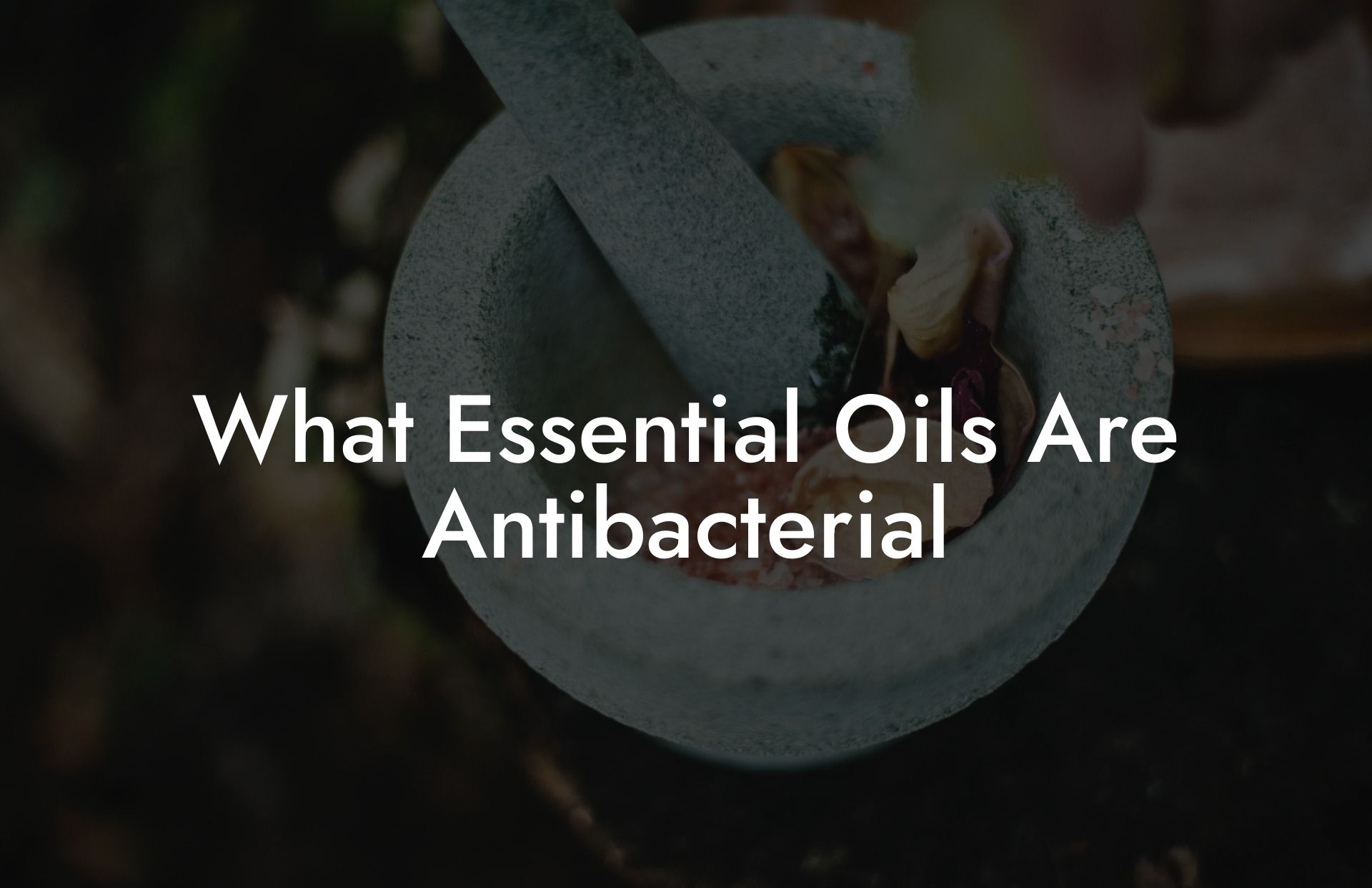Discover the incredible world of antibacterial essential oils and their powerful properties. In this comprehensive guide, we take a deep dive into understanding which essential oils possess antibacterial qualities and how they can be used to support your health and well-being in various ways.
Table of Contents
The Importance of Antibacterial Essential Oils
Antibacterial essential oils, as the name suggests, are oils that have been proven to kill bacteria or inhibit their growth. These oils have been valued since ancient times for their ability to treat infections, promote wound healing, and prevent illness. Today, we are rediscovering the benefits of these oils as a natural and effective alternative to synthetic antibiotics, which can often lead to resistance and side effects.
A Closer Look at Antibacterial Essential Oils
Let’s explore some of the most effective antibacterial essential oils and their benefits, backed by scientific studies:
Tea Tree Oil
- Also known as Melaleuca, this oil has long been appreciated for its antimicrobial, antiseptic, and anti-inflammatory properties. Tea tree oil is helpful in treating skin conditions, combating acne, and can be used in cleaning solutions for a natural germ-killing boost.
Lavender Oil
- A popular choice for relaxation and stress relief, lavender oil is also proven to be a potent antibacterial agent. It’s great for treating minor cuts, burns, and insect bites to prevent infection. Plus, lavender oil is gentle enough for most people to use directly on the skin without diluting it first.
Eucalyptus Oil
- With its refreshing scent and strong antibacterial properties, eucalyptus oil is a powerful addition to any essential oil collection. It helps combat respiratory infections and can be used in DIY cleaning solutions or as an air purifier to kill airborne bacteria.
Peppermint Oil
- This invigorating essential oil doesn’t just freshen your breath or energize your senses. It is well-known for being effective against various types of harmful bacteria. Peppermint oil is versatile and can be used for oral hygiene, digestion, or maintaining a clean and bacteria-free environment.
Thyme Oil
- Thyme oil is another potent antibacterial agent that is particularly effective against antibiotic-resistant strains. This powerful oil can help treat respiratory infections, boost the immune system, and keep your space germ-free when used in cleaning solutions.
Using Antibacterial Essential Oils
Now that we know more about the benefits of antibacterial essential oils, let’s discuss some ways to incorporate them into your everyday life:
- Add a few drops of one or more essential oils to a diffuser to clean the air and create a pleasant atmosphere.
- Include essential oils in your DIY cleaning solutions to enhance their germ-killing power.
- Dilute with a carrier oil (like almond or coconut oil) and apply topically to treat minor cuts, burns, or skin irritations.
- Incorporate antibacterial oils into your daily skincare routine to prevent acne, soothe inflammation, or support wound healing.
- Create a natural hand sanitizer by mixing a few drops of essential oils with a carrier oil or aloe vera gel.
What Essential Oils Are Antibacterial Example:
Let’s create a simple, yet effective, DIY antibacterial surface spray using the essential oils mentioned above. All you need is:
– 1 cup distilled water
– 1/2 cup white vinegar
– 10 drops lavender oil
– 10 drops tea tree oil
– 5 drops eucalyptus oil
– 5 drops thyme oil
Combine all ingredients in a spray bottle and shake well before each use. This powerful surface cleaner is an excellent way to keep your environment clean and bacteria-free without the use of harsh chemicals.
We hope you found this comprehensive guide on antibacterial essential oils informative and useful. By understanding and implementing these natural health allies into your daily life, you can benefit from their protective and anti-infectious properties. Please feel free to share this article with your friends and family, and don’t forget to explore our other guides on Oshu Oils for more essential oil knowledge. And, of course, remember to check out the Oshu Oils range of essential oils to start experiencing the benefits of these remarkable botanical extracts yourself.





















